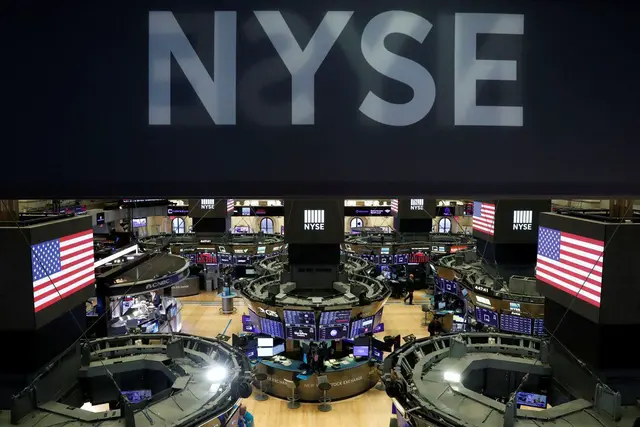The boss of Marks and Spencer has told Sky News that it needs to do "a better job of listening to customers" and to focus its clothing range on wardrobe essentials rather than trying to follow cutting-edge fashion.
Steve Rowe was appointed chief executive at the start of last year and has overseen a significant and expensive restructuring programme.
Last week, he unveiled a set of financial results that showed pre-tax profit falling by nearly two-thirds . Like-for-like sales also dropped.
But behind the scenes, M&S is undergoing a big transformation.
Mr Rowe has spent money on closing overseas stores and also on curtailing the number of online sales.
He's changing the company's approach to clothing, an area where it has struggled badly in recent years.
And on Thursday, he launched a new programme of community projects, designed to bring the company closer to its customers and to reinforce its credentials as an ethical powerhouse.
Mr Rowe made his name running the food division of the company, which has done notably well in recent times.
His challenge now is clearly to transfer that success into clothing, which has sometimes seemed to be withering in the face of competition from the likes of Zara, Top Shop, Primark and supermarkets on the high street, as well as online retailers such as ASOS and Boohoo.
So, I asked Mr Rowe, if M&S had made a mistake in trying to get to the cutting edge of fashion, rather than concentrating on everyday wardrobes.
"Yes I think we did go a little bit too far," he said. "Our customers tell us they want us to interpret fashion and turn it into contemporary, stylish clothes.
"They want us to build them great wardrobe essentials. We haven't done enough of that, so the emphasis in our buying department is now on improving those products, with better quality and better ranges. You'll see more and more of that."
Marks & Spencer recently reported a 63% plunge in annual profits.
The admission that the focus on high fashion was wrong is not the only error that Mr Rowe has identified from the company's recent past.
"We had a lot of interaction with customers, but sometimes we haven't used that interaction as well as we should have done," he told me.
"We've talked to three million people and analysed five million baskets, and we're continuing that dialogue every day.
"Customer satisfaction scores are up, we're listening to our customers, and the clothing business is recovering."
There is a strong sense that, after a year in the job, Mr Rowe is keen to differentiate himself from the previous management.
Under the stewardship of Marc Bolland, Marks and Spencer placed a focus on a programme called Plan A, which became synonymous with worldwide environmental programmes.
Mr Rowe is keen to differentiate himself from his predecessor Marc Bolland.
While Mr Rowe maintains those aims are still being pursued, Thursday's launch was all about helping local communities with projects such as career advice, support for mental health issues and childcare.
"It's about engaging with customers to help them to have a healthier environment, in every way.
"Customers care about this - they want to engage with companies who show social responsibility, who have integrity and are engaged in the local community. And a thriving local community is good for business."
Mr Rowe said that he did sense "growing concerns" in his customers about the state of the economy, but also said that one of the effects of Brexit would be to make the company consider sourcing more products from UK providers.
He also told me that the company would be making "less and less fast fashion" and instead concentrating on garments that are "made to last".
"The Marks and Spencer story is not about what's going on outside at the moment, it's a self-help story," he said.
"We've got lots to do. It's not finished, but it is under our control."
(SKY NEWS)
 简体中文
简体中文



